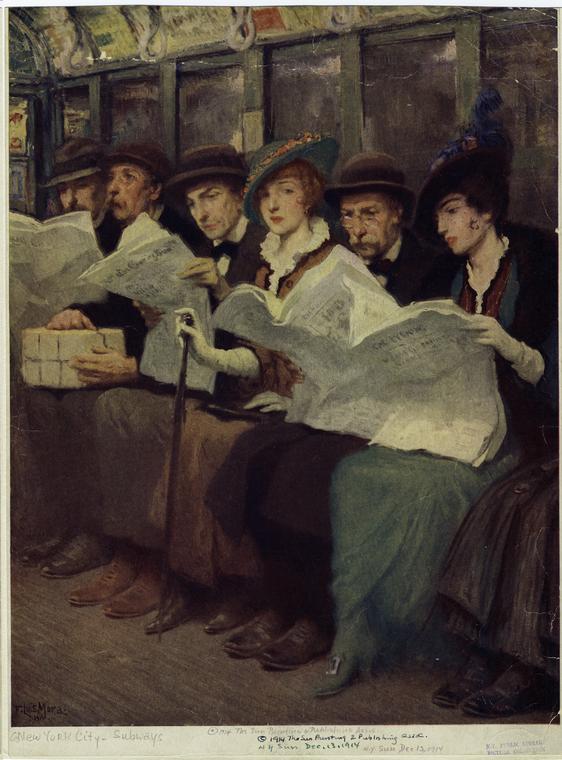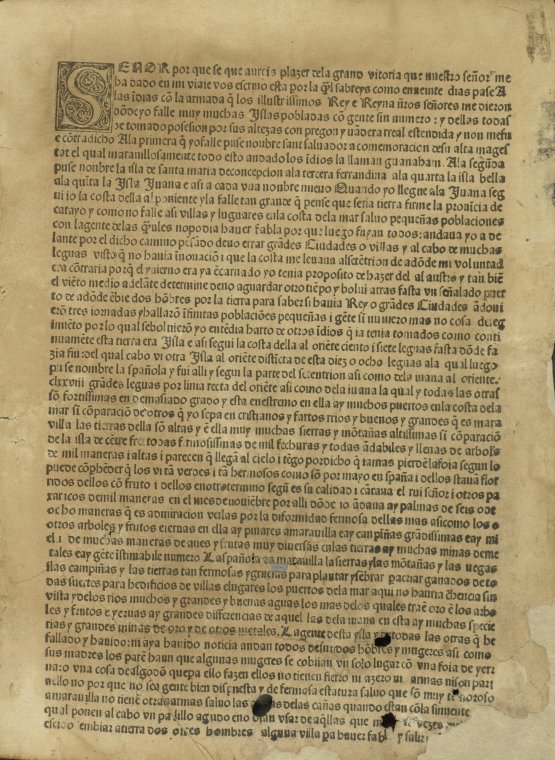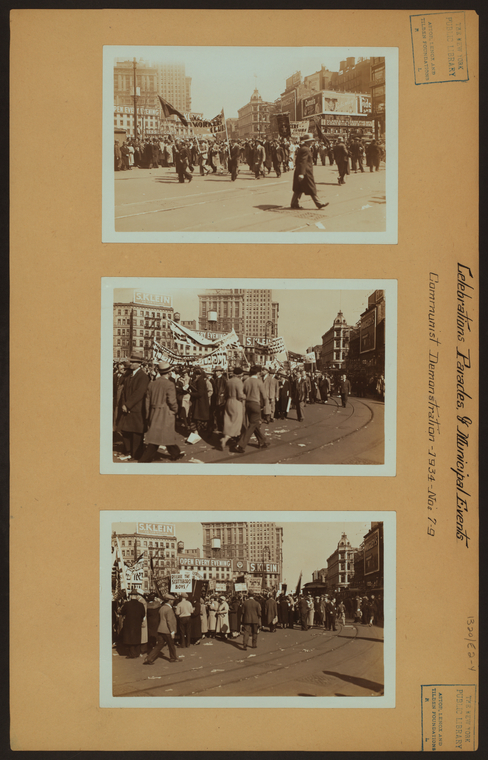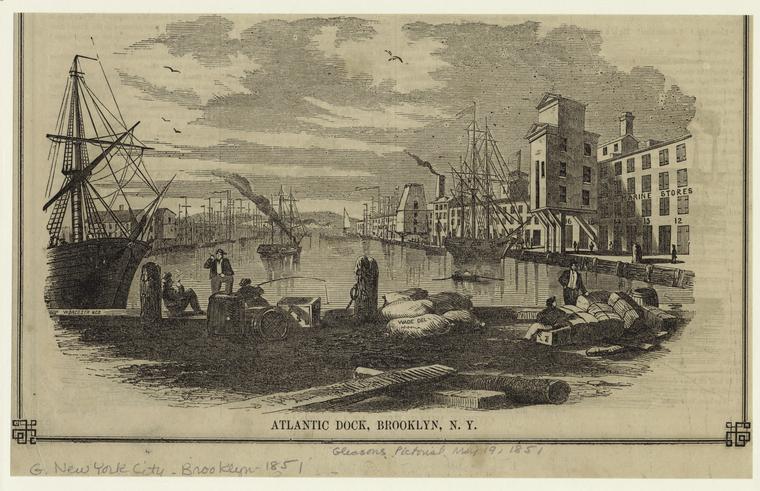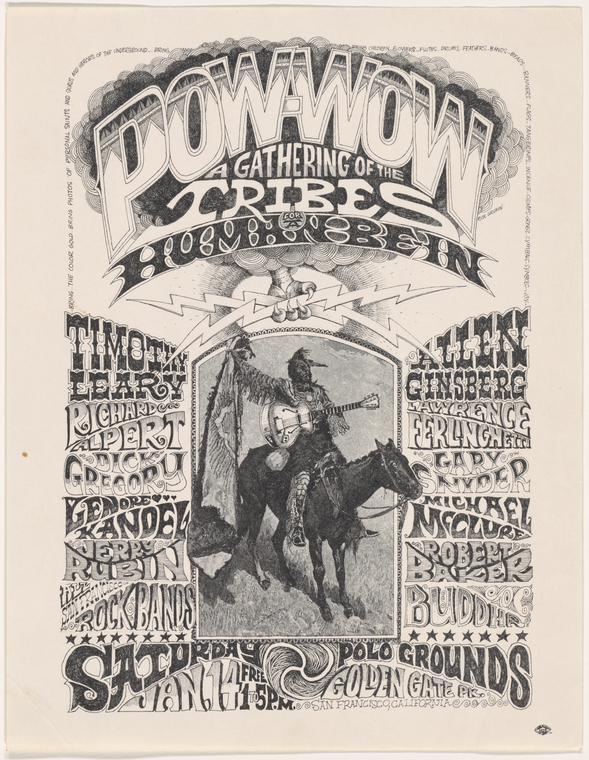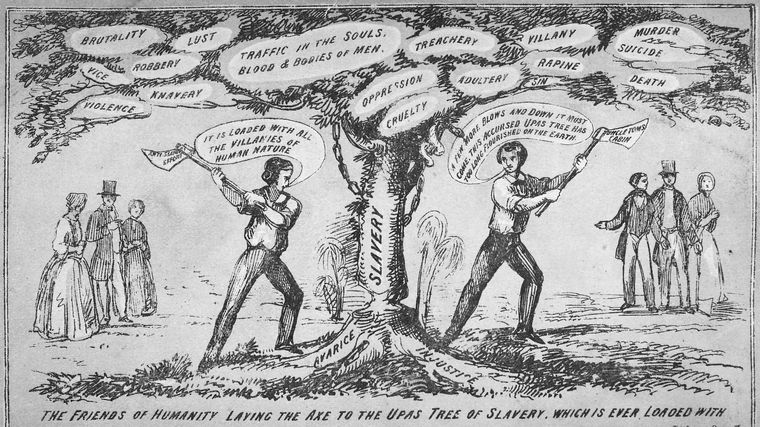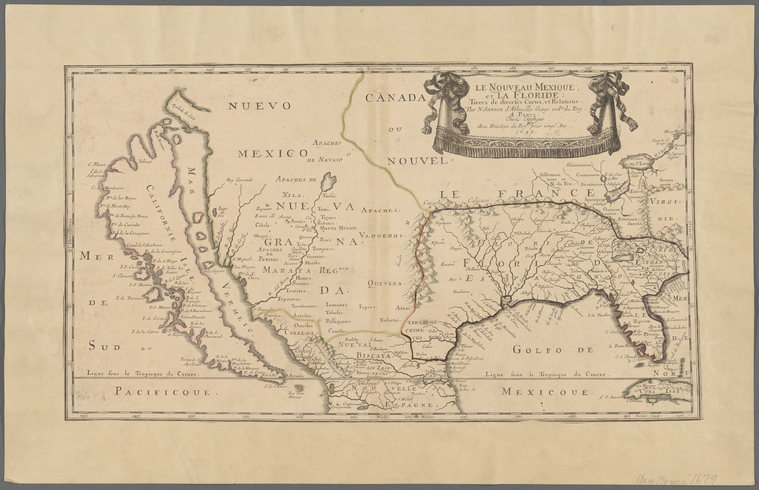Periódicos internacionales en la Biblioteca
by Camila Franco Diaz, Communications
January 13, 2022
Los bibliotecarios de investigación general han creado una guía de investigación de los periódicos más utilizados de esta colección, compuesta por títulos de varias ciudades en más de 70 países.
Doc Chat Episode Forty: Columbus’s 1493 Letter on His First Voyage, Teaching a Troubled Treasure
by Julie Golia, Curator of History, Social Sciences, and Government Information, Stephen A. Schwarzman Building
January 10, 2022
In this episode, two NYPL curators discussed the origins, content, distribution, and legacy of a 1493 letter from Christopher Columbus and offered innovative ideas on how to incorporate the document into teaching about the origins of colonialism in the Americas.
International Newspapers at the Library
by Elizabeth Rutigliano, Librarian, General Humanities Reference, Stephen A. Schwarzman Building
December 23, 2021
The General Research Librarians have created a research guide of the most heavily used newspapers from this collection, comprised of titles from multiple cities in over 70 countries.
Work/Cited Episode 10: The Man Who Hated Women and the Women Who Fought for Reproductive Rights
by Meredith Mann, Manuscripts and Archives Division, Stephen A. Schwarzman Building
November 5, 2021
In this episode, NYPL's Melanie Locay and Amy Sohn, New York Times bestselling author of The Man Who Hated Women: Sex, Censorship & Civil Liberties in the Gilded Age, discussed Sohn's research into a critical moment in the history of anti-censorship and reproductive rights activism in America. In 1873, the Comstock law passed, penalizing the mailing of contraception and obscenity with harsh sentences and steep fines. Anthony Comstock, special agent to the Post Office and the law's namesake, viewed reproductive rights as a threat to the American family. Between 1873 and the
Doc Chat Episode Thirty-Two: Identity, Anti-Bias Practices, and the Library Catalog
by Julie Golia, Curator of History, Social Sciences, and Government Information, Stephen A. Schwarzman Building
October 26, 2021
In this episode, NYPL's Paloma Celis Carbajal and Jelicia Jimenez were joined by Bronwen Maxson of the University of Oregon to discuss how issues of identity, particularly as relates to immigrant communities in the U.S., have shaped discovery tools such as library catalogs in far-reaching ways. They also examined the role of student activism in catalyzing change.
Work/Cited Episode 9: Contraband Russian Literature
by Meredith Mann, Manuscripts and Archives Division, Stephen A. Schwarzman Building
October 21, 2021
In this episode, Bogdan Horbal, Curator of the NYPL's Slavic and East European Collections, and Yasha Klots, Assistant Professor of Russian Literature at Hunter College, CUNY, discussed tamizdat, the contraband Russian literature published outside of the Soviet Union.
Mes Nacional de la Herencia Hispana 2021: realización de investigaciones con los recursos electrónicos y otras bases de datos de la NYPL
by Camila Franco Diaz, Communications
September 13, 2021
Lista de recursos en línea gratuitos para ayudarle a profundizar en los muchos aspectos de la historia y la cultura latinx e hispana, todo gratis con una tarjeta de la biblioteca.
National Hispanic Heritage Month 2021: Researching with NYPL's E-Resources and Other Databases
by Camila Franco Diaz, Communications
September 13, 2021
List of free online resources to help you delve into the many aspects of Latinx & Hispanic history and culture, all free with a library card.
NYPL Researcher Spotlight: Cullen Gallagher
by Andy McCarthy, Milstein Division of U.S. History, Local History & Genealogy, Stephen A. Schwarzman Building
June 24, 2021
"Jump in and let your enthusiasm be your guide. Just because somebody hasn’t written about a piece of information yet doesn’t mean it isn’t out there—it’s amazing what is just waiting to be discovered."
Doc Chat Episode Twenty-Six: Pandemic Visions in Newspapers and Literature from Mexico
by Julie Golia, Curator of History, Social Sciences, and Government Information, Stephen A. Schwarzman Building
June 1, 2021
In this episode, NYPL's Paloma Celis Carbajal and Óscar A. Pérez, Assistant Professor of Spanish at Skidmore College, explored cultural expressions in Mexico during the influenza pandemics of 1918 and 2009 through newspapers and other digitized materials.
The Hundredth Anniversary of the Treaty of Riga
by Bogdan Horbal, Curator for Slavic & East European Collections, Stephen A. Schwarzman Building
March 18, 2021
The treaty was signed between Poland on one side and Russian and Ukrainian Soviet republics on the other. It ended the Russo-Polish War of 1919–20 and established a new Polish border.
Before Suffrage: Feminism in Slavic and East European Lands
by Bogdan Horbal, Curator for Slavic & East European Collections, Stephen A. Schwarzman Building
March 8, 2021
It was only beginning in 1917 that the process to introduce women's right to vote picked up momentum worldwide resulting in women's suffrage becoming a reality in an increasing amount of states, including Slavic and East European countries. Below are some books written in the late 19th and early 20th century (all digitized) which were published to raise an awareness and appreciation of women's contributions to society.
Doc Chat Episode Fourteen: Exploring the Black Alternative Press of the 1960s and 1970s
by Julie Golia, Curator of History, Social Sciences, and Government Information, Stephen A. Schwarzman Building
February 22, 2021
In this episode we're joined by Amaka Okechukwu, professor of sociology at George Mason University, to analyze excerpts from 'Black Dialogue' and discuss the historical context in which the magazine was written, published, and circulated.
Work/Cited Episode 4: Creating the Letters of Pride and Prejudice
by Meredith Mann, Manuscripts and Archives Division, Stephen A. Schwarzman Building
February 19, 2021
In this episode, we were joined by Barbara Heller and Anna Pinto who worked on a new edition of 'Pride and Prejudice' filled with reproductions of the book's Regency-era correspondence.
Doc Chat Episode Twelve: Putting Protest Photography Under the Lens
by Julie Golia, Curator of History, Social Sciences, and Government Information, Stephen A. Schwarzman Building
January 6, 2021
In the final Doc Chat of the year, we dug into the stories behind photographs of radical demonstrations in early 20th-century New York City.
Doc Chat Episode Ten: Along Brooklyn's Industrial Waterfront
by Julie Golia, Curator of History, Social Sciences, and Government Information, Stephen A. Schwarzman Building
December 11, 2020
In this episode, NYPL curators Ian Fowler and Julie Golia analyzed maps, illustrations, and other primary sources from NYPL’s collections to look at the transformation of Brooklyn’s waterfront economy and built environment
Work/Cited Episode 1: This Is What Democracy Looked Like
by Meredith Mann, Manuscripts and Archives Division, Stephen A. Schwarzman Building
November 6, 2020
In its inaugural episode, NYPL's Meredith Mann and Alicia Cheng, author of 'This Is What Democracy Looked Like: A Visual History of the Printed Ballot', discussed American ballots' evolving graphic design and what they can tell us about the history of voting and elections.
Doc Chat Episode Five: Poetry and Revolution on the Lower East Side
by Julie Golia, Curator of History, Social Sciences, and Government Information, Stephen A. Schwarzman Building
October 26, 2020
Revolution was in the air on October 8, 2020, when the Doc Chat community traveled back in time to New York City in the 1960s to learn about the vibrant radical literary culture of the Lower East Side.
Doc Chat Episode Three: Abolitionism in Black and White?
by Julie Golia, Curator of History, Social Sciences, and Government Information, Stephen A. Schwarzman Building
September 30, 2020
NYPL’s Julie Golia and Bronx Community College Professor and public historian Prithi Kanakamedala discussed one anti-slavery illustration and what it can tell us about the racial politics of abolitionism.
From Hispanic to Latine: Hispanic Heritage Month and the Terms That Bind Us
by Paloma Celis Carbajal, Curator for Latin American, Iberian, and U.S. Latino Collections, Stephen A. Schwarzman Building
September 29, 2020
A brief and interesting history of the evolving language used to identify people with ancestry from Spanish speaking territories or from countries south of the U.S.-Mexican border.
 With your library card, it's easier than ever to choose from more than 300,000 e-books on SimplyE, The New York Public Library's free e-reader app. Gain access to digital resources for all ages, including e-books, audiobooks, databases, and more.
With your library card, it's easier than ever to choose from more than 300,000 e-books on SimplyE, The New York Public Library's free e-reader app. Gain access to digital resources for all ages, including e-books, audiobooks, databases, and more.